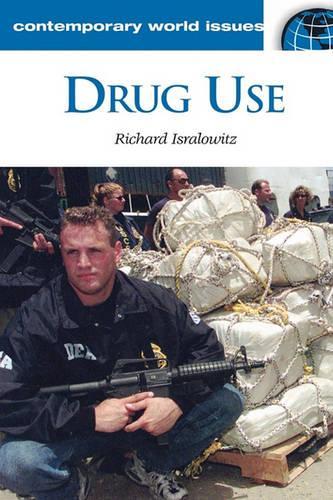
Drug Use: A Reference Handbook
(Hardback)
Available Formats
Publishing Details
Drug Use: A Reference Handbook
By (Author) Richard Isralowitz
Bloomsbury Publishing PLC
ABC-CLIO
14th May 2004
United States
Classifications
General
Non Fiction
Crime and criminology
362.295610973
Physical Properties
Hardback
269
Description
An intriguing look at the delicate balance in American drug policy between enforcement and reducing supply, versus prevention and reducing demand. Like heroin and cocaine before it, "crack" now drives American drug policy, and our prisons overflow due to mandatory "three strikes" sentencing. Even with a Cabinet-level drug czar, Americans continue to use crack and other mind-altering drugs in record numbers. Horse, Smack, Crack, Ecstasy, U.S. Drug Policy: A Reference Handbook focuses on the shifting approaches and attitudes behind American drug policies, especially in the last 30 years. This thought-provoking volume emphasizes the need to balance the legislation championing enforcement and reducing supply, with that calling for treatment, prevention, and reducing demand. Here is a probing look at illegal substances, along with the motivation, problems, controversies, and proposed solutions surrounding their use. Rounding out this study of a complicated aspect of American culture are the major events and significant people that influenced U.S. drug policy, what's behind addiction, and plenty of statistics.
Reviews
"A great resource for students researching drug use in the U.S... A strength of the volume is its documented statistics and excerpts from books, journals, and newsletter articles, and commission reports, many of which include websites... A thorough table of contents, glossary, appendix of drug categories and street terms, and index ease access to the information while the excellent documentation and bibliography will lead readers to additional resources. This handbook will be in demand." - School Library Journal
Author Bio
Richard Isralowitz, PhD, is a professor in the Spitzer Department of Social Work at Ben-Gurion University of the Negev, Be'er Sheva' Israel. His drug prevention and research efforts have affiliated him with the U.S. National Institute on Drug Abuse, the Substance Abuse and Mental Health Services Administration, and the U.S. Agency for International Development.
